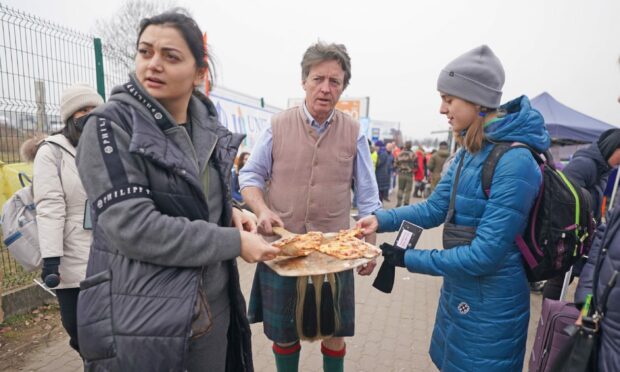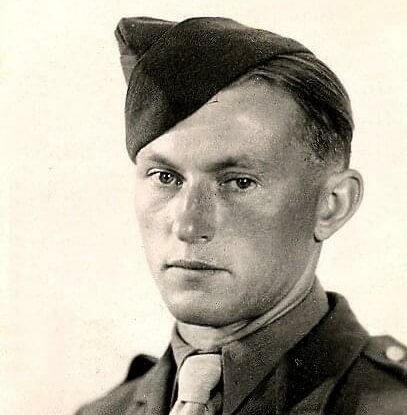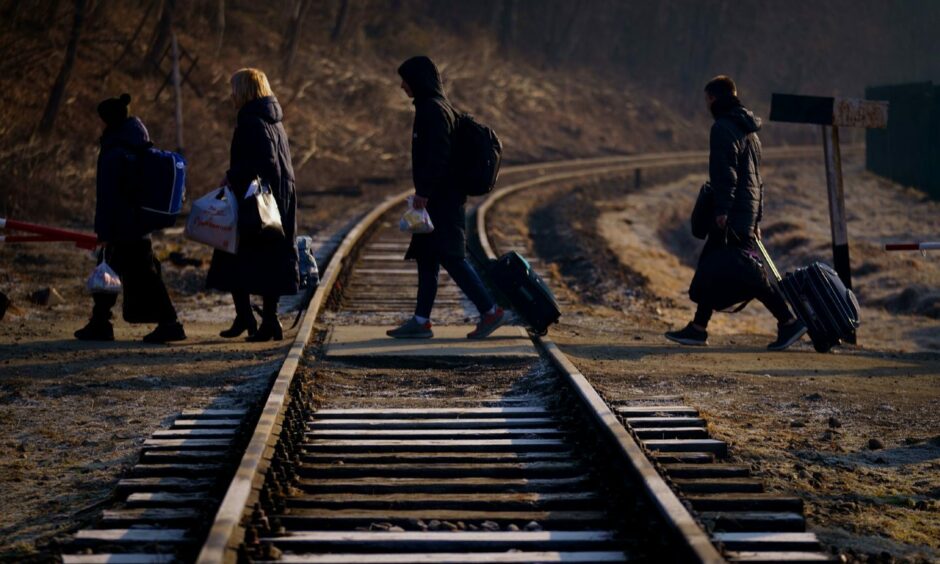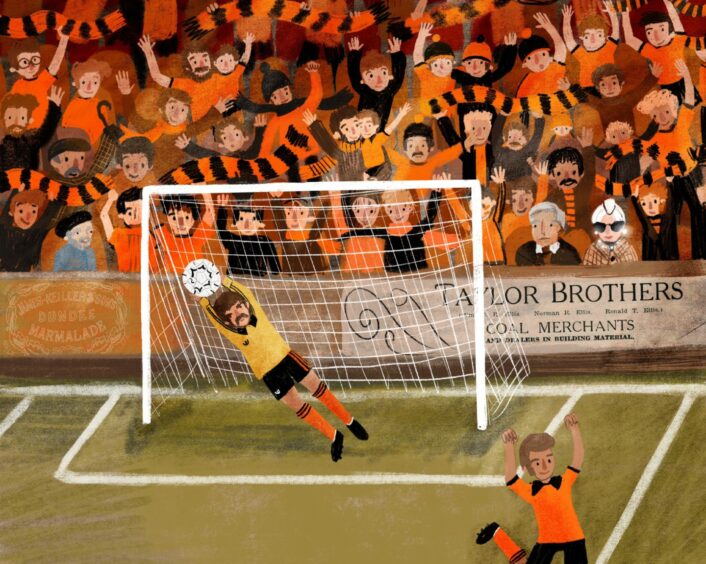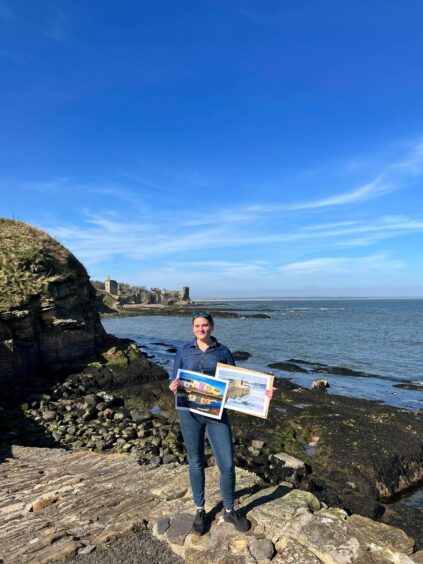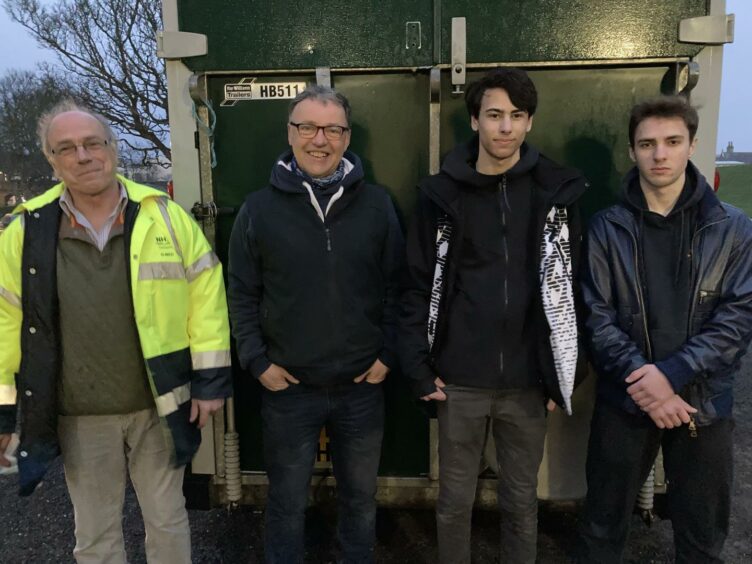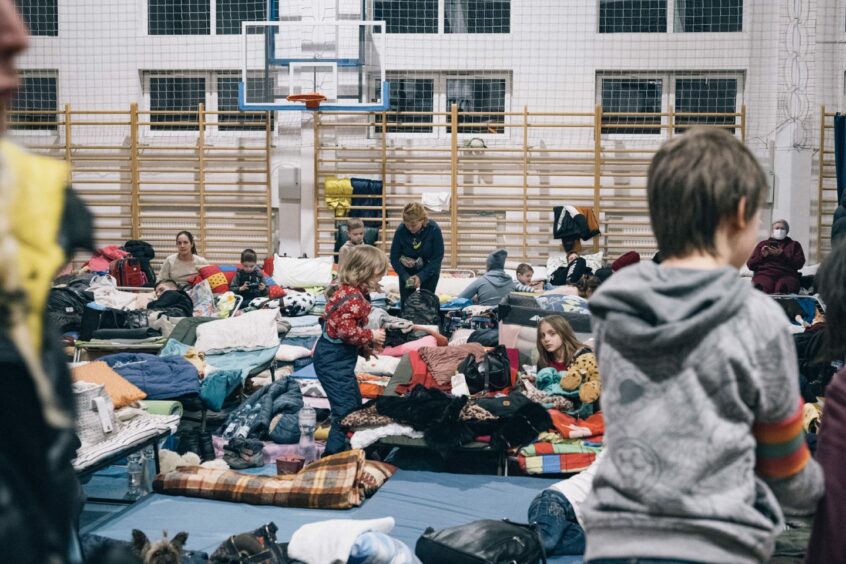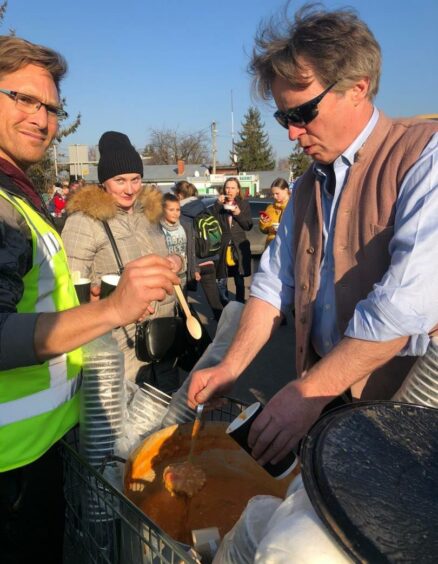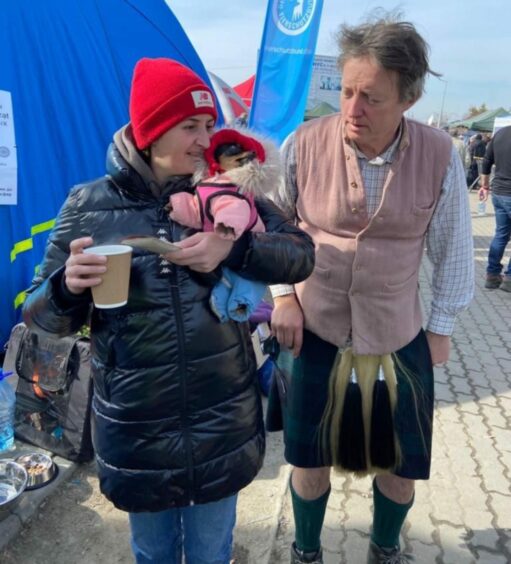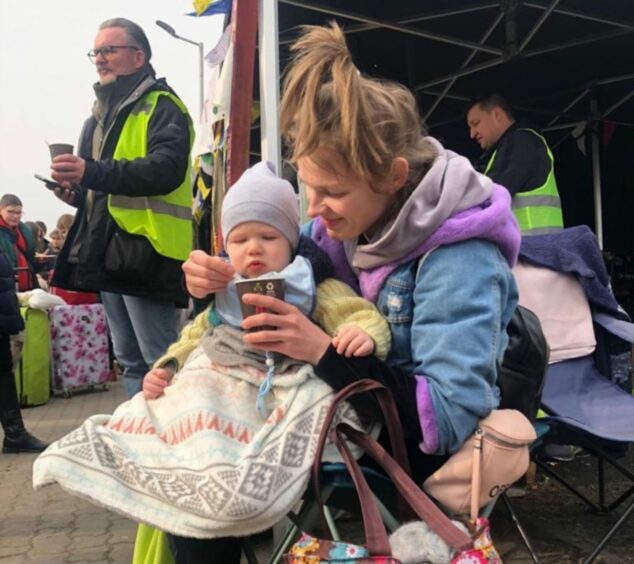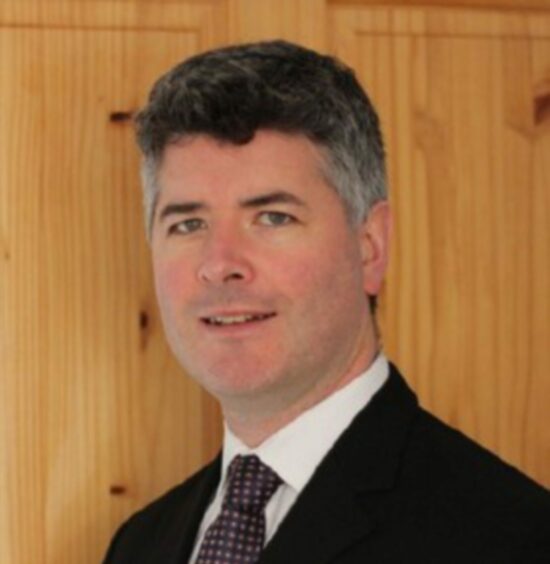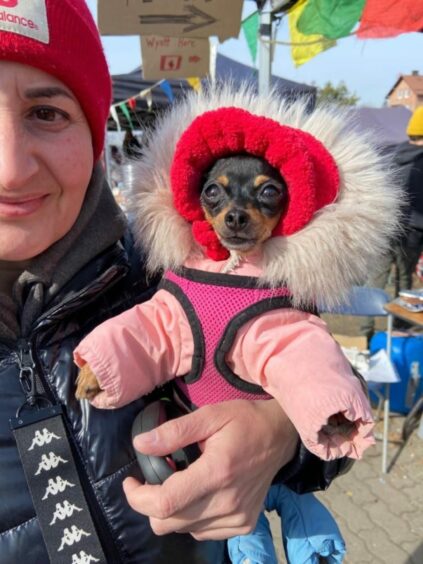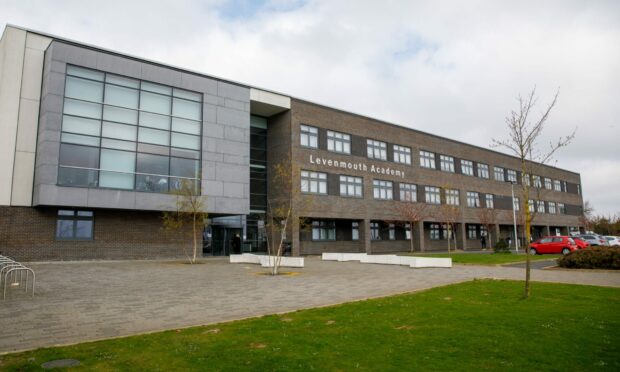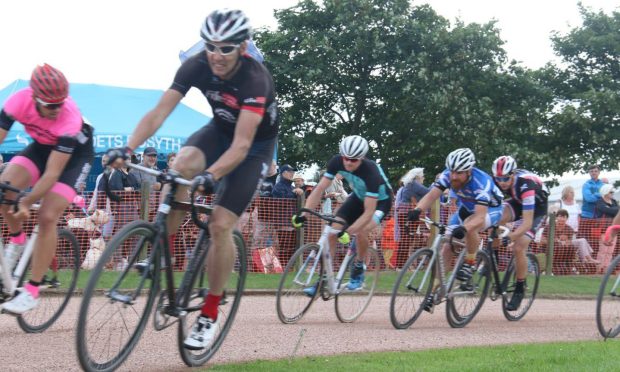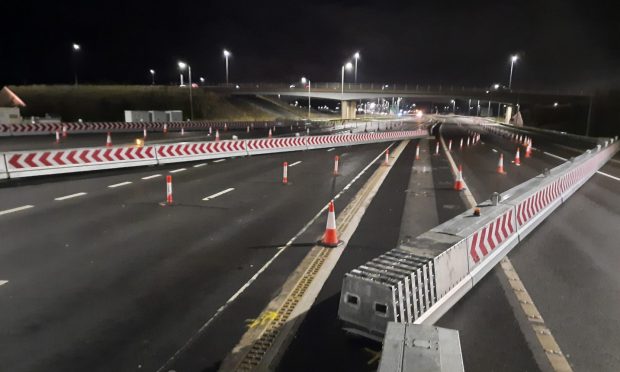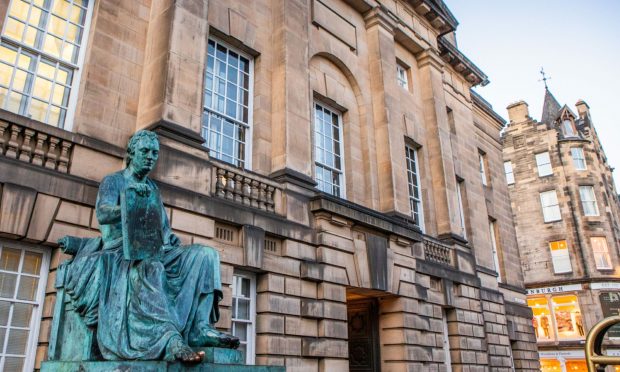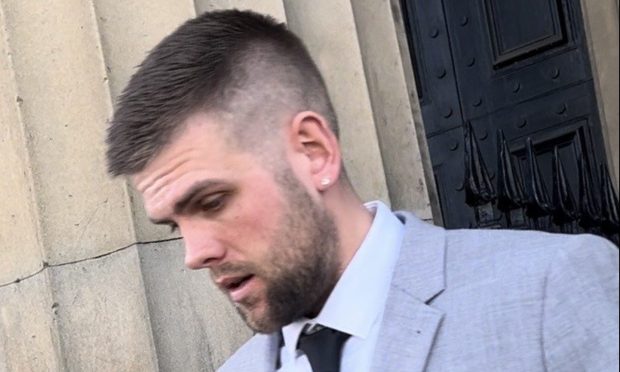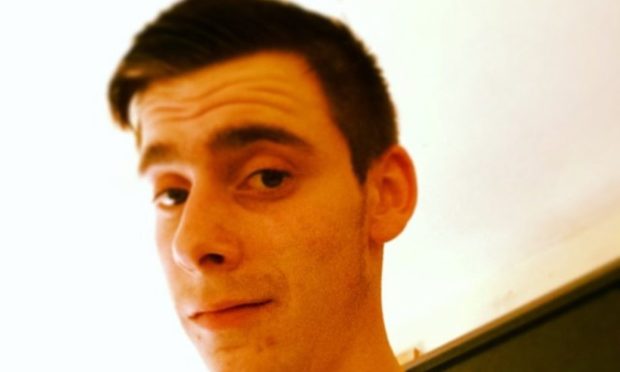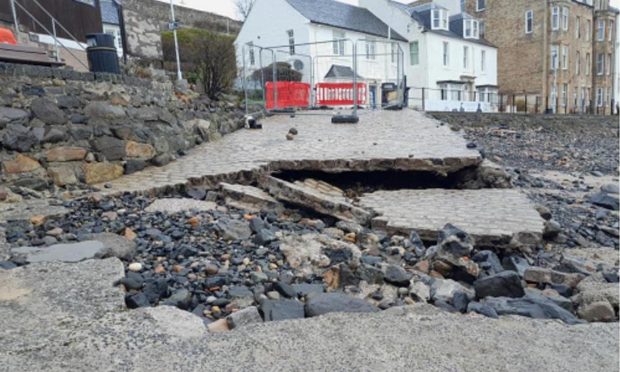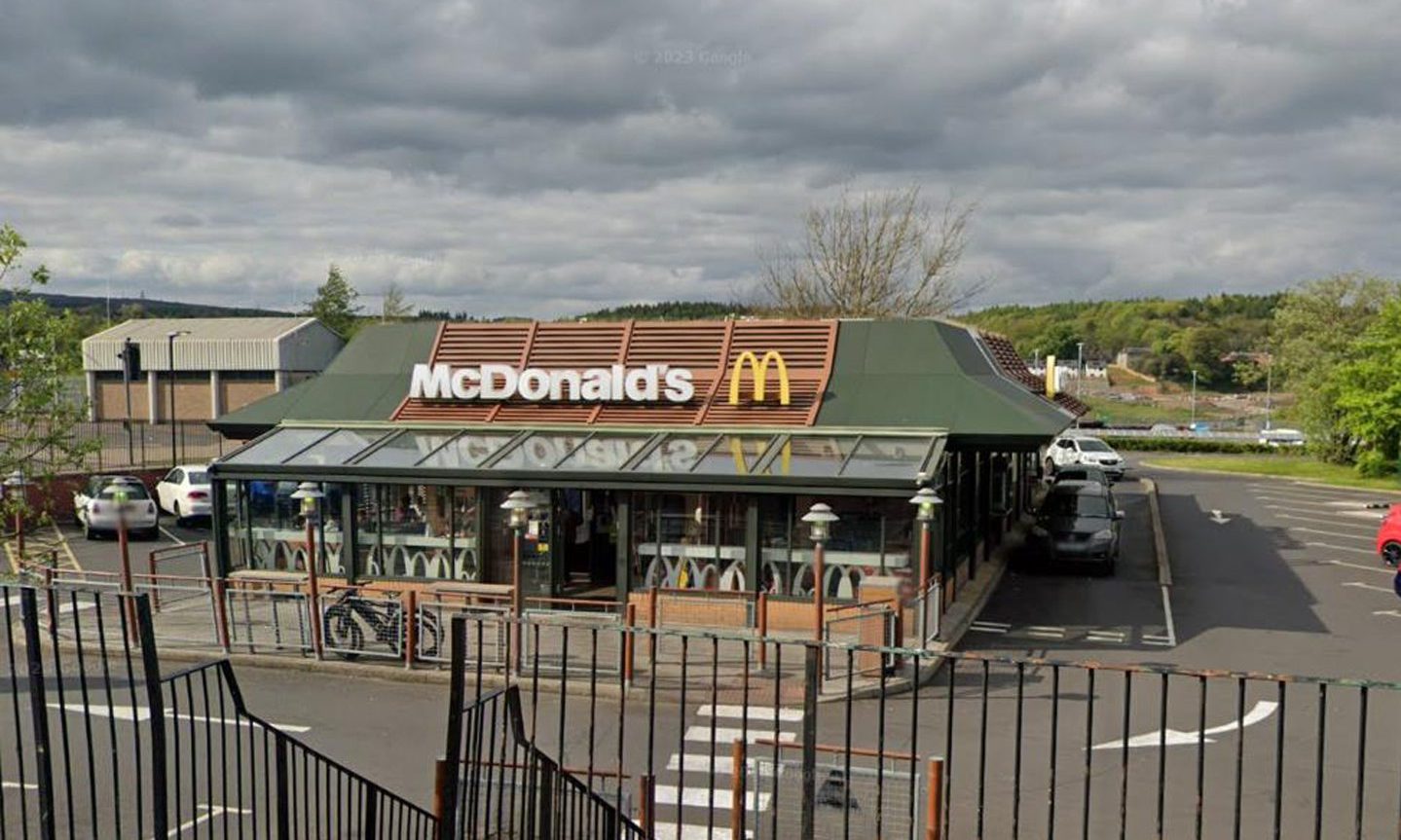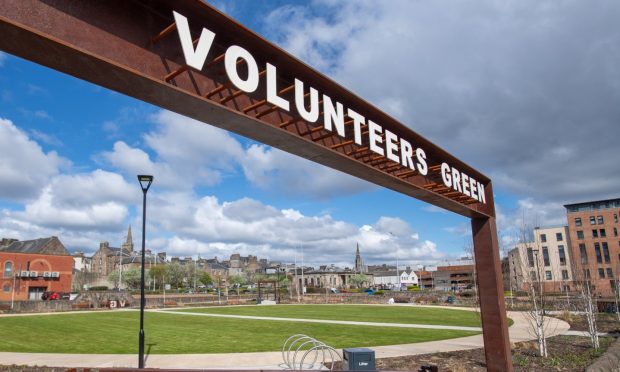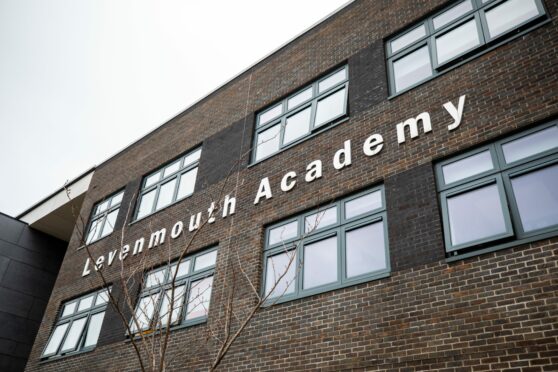A month after the Russian invasion of Ukraine, Michael Alexander speaks to some of the selfless volunteers from Tayside and Fife who are trying to help thousands of traumatised refugees in any way they can.
Echoes of war
The day that Russia invaded Ukraine, my mind was taken back to a day more than 30 years ago when my grandad stopped me in the street on my way to school.
He said in broken English: “Miko, how old you now?”
I said I was 17. (He was 17 when the Germans invaded his Polish village in September 1939).
He nodded, and after a pause, simply said: “I hope you never have war” and continued on his way…
In recent weeks, I’ve looked at the worried faces of my own children watching the terrible events unfold on our TV screens, and wondered what, if anything humanity has actually learned.
I think I know what my grandad would say…
Human suffering
Like so many of his generation, my grandad rarely talked in detail about the Second World War.
But when he did, it was from the perspective of someone who was still a boy when Nazi Germany and the Soviet Union invaded his country.
He was forced from home and after somehow surviving hostilities, eventually settled in Fife after the war as a “displaced person”.
With the Iron Curtain in place, and Soviet atrocities being committed, his family advised him not to return to Poland. He never saw them again.
The heart-breaking scenes in Ukraine have made me think about what my grandfather and his family must have gone through, the human suffering behind conflict, and how the echoes of war last for generations.
Current events also remind us that the scars of war in Eastern Europe run incredibly deep.
It’s no surprise then that the Polish people, as immediate neighbours to Ukraine and with first-hand experience of invasion within living memory, have been so valiant in their efforts to help refugees.
The Polish perspective
Agata Kulesa, 49, who helped me track down Polish relatives in 2003, lives in the village near Krakow where my grandfather grew up.
She says people across Poland are “very committed” to help.
However, after the experiences of the First and Second World Wars, the Poles are still shocked that in the 21st century “someone would once again dare to expose people to such suffering”.
She told me: “There are very many volunteers who want to help. We see a lot of Ukrainians at train stations, in cities and even in our neighbourhood.
“They find shelter in private houses as well as in fire stations, community centres and holidays homes.
“But it is a pity that the Ukrainians have to suffer unimaginably because of the wrong decisions of one person.”
Generosity from Tayside and Fife
Here in Tayside and Fife, and indeed across Scotland, the UK, Europe and beyond, the generosity of ordinary people wanting to help during these bleak times has been heart-warming.
From busking to bake sales and financial donations to people signing up to the Homes for Ukraine scheme, there’s been a magnificent, often frustrated, humanitarian response to the Ukraine war.
Dundee-raised picture book illustrator, author and self-taught artist Gillian Gamble has been selling downloadable pictures for the Red Cross Ukraine appeal.
These include an image inspired by Michael Marra’s famous song Hamish (The Goalie).
The song, written about Dundee United goalkeeper legend Hamish McAlpine, references Princess Grace of Monaco’s legendary trip to watch Monaco’s UEFA Cup tie against Dundee United at Tannadice on September 30, 1981.
“I think if Michael Marra was around he would have been wonderful at communicating the ordinary human cost of this conflict and making us see that it could just as easily be us,” says Gillian, who has also been selling two images featuring sunflowers – the iconic flower of Ukraine – through gilliangambleart.Etsy.com
Polish support from St Andrews
Someone else with a creative eye who’s been trying to make a difference is talented amateur photographer Marta Droszkowska Raynor who lives in St Andrews.
Born and raised in Bydgoszcz, Poland, the 37-year-old mum, who has lived in Scotland for 15 years, is selling A3 prints of her St Andrews landscape photographs for £7 each.
All proceeds are going to the children of Ukraine via Polish Unicef.
The bar manager at The Keys Bar regularly posts stunning images on the St Andrews Photo Corner Facebook page.
Such is the popularity of her photos, she sells calendars of her work each autumn for charity.
Speaking to her family in Poland, however, and watching the unfolding events with horror, she decided she wanted to do something specific to help Ukrainian children.
After selecting six images and striking an “amazing deal” with West Port Print & Design for 500 prints, she sold almost 200 A3 prints, mainly to local people, within the first week.
“It all obviously comes from the history,” she says when asked about Poland’s incredible humanitarian response.
“On September 1 1939 we got attacked by Germany and I think lots of Polish people remember that. Because Ukraine is so close, it’s the same. Of course, history is not all roses between Poland and Ukraine.
“But in the 21st century this shouldn’t happen. We are supposed to learn from history. You hear some people say ‘this is not our war’, but it’s important we do something to help the people because it could be us.”
Travelling to the frontlines
A number of selfless Courier Country residents have travelled to the Poland-Ukraine border to help with the immediate needs of refugees.
They include Ceres father-of-two Mark Fleming, 57, who embarked upon a 3000-mile eight-day round-trip from Fife during the second week of the war.
Supported by donations at St Leonards School in St Andrews, and undeterred by a break-down en route, the chartered surveyor, accompanied by his friend Godfrey Darling, drove his 4×4 and horsebox to the Polish city of Lublin, near the Ukraine border, packed with food and non-perishable supplies.
Initially giving out energy drinks and food to exhausted mothers and children arriving at Lublin railway station, they were directed to a local synagogue where the rest of their supplies were quickly distributed.
He said it was inspiring to meet like-minded volunteers who’d driven from across Europe to help. The Polish efforts were “amazing”.
However, it was incredibly sobering to hear harrowing stories of Ukrainians who’d fled for their lives.
“My worry is what we saw was just the thin end of the wedge,” says Mark, who, at the time of this interview, has raised £18,500 which will go towards the Tayside-based charity Siobhan’s Trust (Siobhanstrust.uk).
“The first people to leave were those with the means. But there’s going to be a tsunami of poorer, more traumatised people following from deep within Ukraine. We’re starting to see that now.
“The Poles and everyone else have been enormously generous hosting people.
“But the pressure is just going to keep coming.
“When we were leaving, one of the guys on the ground out there said ‘look we’re delighted you are helping.
“But don’t forget us because it’s going to get worse and worse and worse’.”
‘Make Pizza not war’
Perthshire adventurer David Fox-Pitt, who established Siobhan’s Trust, set off on his ‘Make Pizza Not War’ mission to the Poland-Ukraine border three weeks ago.
The tented field kitchen him and his small band of volunteers are running on the Polish side of the border at Medyka is being kept “manically busy”.
As refugees stream over the border, kilt-wearing David and his team are just 25 yards from the border fence handing out over 2000 cups of soup, tea and coffee per day, as well as chocolate, bananas, sweets, cakes, Pot Noodles and porridge.
The pizza they are serving is proving particularly popular amongst the exhausted, traumatised souls.
Assisted by volunteers from the United Sikhs, soup is also being taken into Ukraine via “trolley convoys” to feed exhausted women and children queuing for hours in freezing conditions before they can cross over. Warm clothes and blankets are also being distributed.
Thanks to financial donations to Siobhan’s Trust, David and his team are spending around £900 a time to re-supply at a local Polish supermarket.
However, speaking to The Courier after a “difficult night” which saw multiple trains come into the station packed with traumatised young mothers and children during the early hours, conditions have been increasingly challenging with temperatures dropping to minus 12.
With a multi-national mix of volunteers across multiple agencies and more refugees passing through than ever – many carrying pets – accreditation has had to be stepped up amid growing concern that people traffickers are attempting to “pick off” lone children.
There’s evidence that the mafia are operating while David suspects Russian infiltrators may also be in the area observing.
David, meanwhile, has “got wise” to some locally-based beggars who are coming up from Polish villages to “fill their bags” with tins.
“We’re getting quite good at catching them now!” he says.
‘Much love’ for refugees
Overall, however, he says people are “pretty decent” and there is “so much love” for the Ukrainians who are often bewildered yet so grateful for the support they are receiving. They’ve also been delighted to see the Saltire and the kilt.
“Very few speak English,” he adds, “but when they can, they tell us where they’ve come from and what’s happened.
“It’s just horrific what’s happening over the border and it’s so sad to see so many fleeing their homeland and leaving their men behind.
“But they seem pretty happy when they get here. There’s a big registration centre then buses and trains can take them across Europe.”
Experiences in Sarajevo
Fife man David Hamilton is no stranger to delivering lorry loads of humanitarian aid to conflict zones.
The founder of the charity Remembering Srebrenica Scotland, who sits on the committee of relief agency Edinburgh Direct Aid, drove relief lorries to Sarajevo under heavy gun fire during the four-year siege of the city by Bosnian Serb forces in the mid-1990s.
His mother-in-law Christine Witcutt, who was also an aid worker with Edinburgh Direct Aid, was shot dead whilst leaving Sarajevo with an aid convoy in 1993.
However, when 50-year-old David flew out on a three-day “fast recce” to the Poland-Ukraine border last week – and “rolled up his sleeves” after bumping into David Fox-Pitt – it was “almost surreal” when the opportunity arose to cross into Ukraine with a shopping trolley full of soup to help feed those queuing on the other side.
“A Ukraine stamp on my passport wasn’t what I was expecting, but we just had to get a high vis on and charm the border guards to get through,” says the Police Scotland inspector who is chairman of the Scottish Police Federation.
“It was almost surreal – pitch black, going into Ukraine and helping the folk on the other side, because there was so many of them and it was absolutely freezing.”
‘Chilling similarities’
David said there are “chilling similarities” to his experiences in the Balkans where all the fleeing refugees were women and children.
In Bosnia, it emerged, this was because of the 1995 massacre of around 8000 Muslim males in the eastern enclave of Srebrenica which was Europe’s worst mass killing since the Second World War.
In Ukraine, where the absence of men is down to them staying behind to fight, women and children are equally traumatised wondering if they’ll ever see them again.
Despite the circumstances, however, something as simple as giving out soup leads to “much banter”.
Those who spoke English came across and said “thank you so much for doing this” – even those who didn’t want soup.
Volunteer ‘burn out’ concerns
David describes the work of David Fox-Pitt as “absolutely brilliant”.
He’s exploring the possibility of a formal tie up between Edinburgh Direct Aid and Siobhan’s Trust as they have the “same ethos and values”.
Conditions are rough, however, and with even more traumatised refugees expected from now on, he worries that volunteers on the ground will soon “burn out”.
He’d like to see the UK government be far more proactive in encouraging refugees to come to Britain.
He said that during his visit a formal UK presence was “absent entirely” from the refugee centres and this was “an embarrassment”.
Through his discussions with the Scottish Government, he was pressing for an increased “Scottish footprint” which would prioritise getting refugees over here and to safety.
He warned, however, that time was running out before the “next surge”.
Perthshire man leads Ukraine mercy dash to set up field kitchen for fleeing refugees
